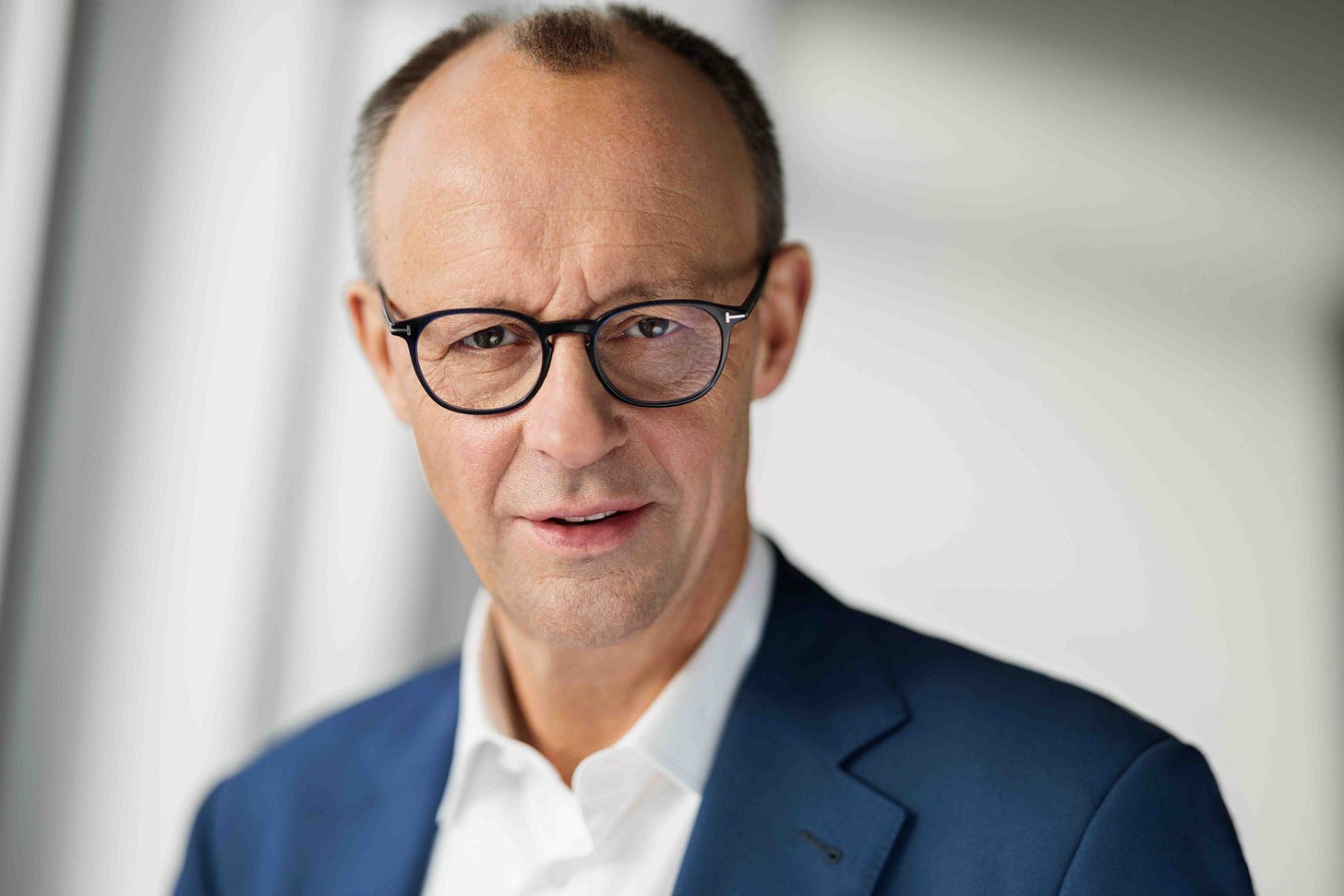Is Friedrich Merz really the new strong man in Europe?
The Conservatives won yesterday's election in Germany, but their leader Friedrich Merz still faces some challenges before he can enter the chancellory.
THE worst case scenario for Germany was narrowly avoided last night: For a long time, it looked like the BSW, a new, populist movement led by Sarah Wagenknecht, would snatch enough votes to enter Parliament. In that case, Friedrich Merz, the likely new Chancellor and leader of the conservative CDU, would have been forced to form a threeway coalition with the Social Democrats and the Greens if he wanted to stay true to his promise to not form a government with the biggest winner of the election, the righ-wing AfD, which came in second in the polls.
In the end, BSW did not get into Parliament and a "grand coalition" between the CDU and the Social Democrats is now the most likely outcome of the coalition negotiations that will start in the coming days.
Many in Europe (including me) hoped that Friedrich Merz would make Germany a more decisive player in the Council and end the "German vote" where Germany stays silent in policy debates or abstains in important decisions in Brussels because the coalition cannot agree on a joint position. Merz himself at least has frequently (and rightly so) criticized Chancellor Olaf Scholz' policy on Europe and promised to do better.
However, as the dust settles, it is not entirely clear how he can deliver on this promise: On many of the most controversial topics in Europe like migration, budget and the green transition, the position of the Conservatives and the Social Democrats are far apart. In addition, the Social Democrats in the German government might be tempted to use German support as a bargaining chip to stop the EPP from forming voting blocks with the ECR at the expense of the progressive parties.
The performance of the Conservatives was bad in Eastern Germany and exceptional only in Bavaria, where Merz was not on the ballot.
There is another reason why Friedrich Merz ist not the power broker many think he might be: His party's performance was in fact not as good as it seems at first sight: looking only at Eastern Germany, the AfD is the strongest party with 32 per cent of the vote (CDU: 18.7 per cent!). In Western Germany, the only state where the Conservatives outperformed the national average considerably was Bavaria.
However, Friedrich Merz was not on the ballot paper in Bavaria: The CDU does not have their own candidates in Bavaria. Instead, voters vote for their Bavarian sister party CSU, led by Markus Söder. Markus Söder however, just like the party's chiefs in Eastern Germany, are considerably more right-wing than Friedrich Merz is. They might argue that in order to win back votes, the CDU needs to become more like the AfD.
In last nights talk shows, everyone agreed that time is of the essence when entering coalition talks now. But this is especially true for Friedrich Merz. Alice Weidel, the head of the AfD, proclaimed that her party is open to a coalition with the Conservatives and emphasized the huge overlap in their party's respective election manifestos in areas like migration, energy and economic policy. The fundamental shift in policy that the Conservatives said was needed for the country will not be possible with the ailing Social Democrats, Weidel added.
Merz categorically ruled out talks with the AfD, but the longer talks with the Social Democrats last (or if they were to fail in the end), the more likely it is that the mood in the Conservative Party will shift against Merz and his politics of isolating the AfD. It was Merz, after all, who said just a few weeks before the election that if the policy is right, he doesn't care who supports it.
These words may still haunt Merz who, two decades after Angela Merkel ousted him from politics, is close to fulfilling his lifelong dream of becoming Germany's chancellor. And yet, he is not quite there yet.





